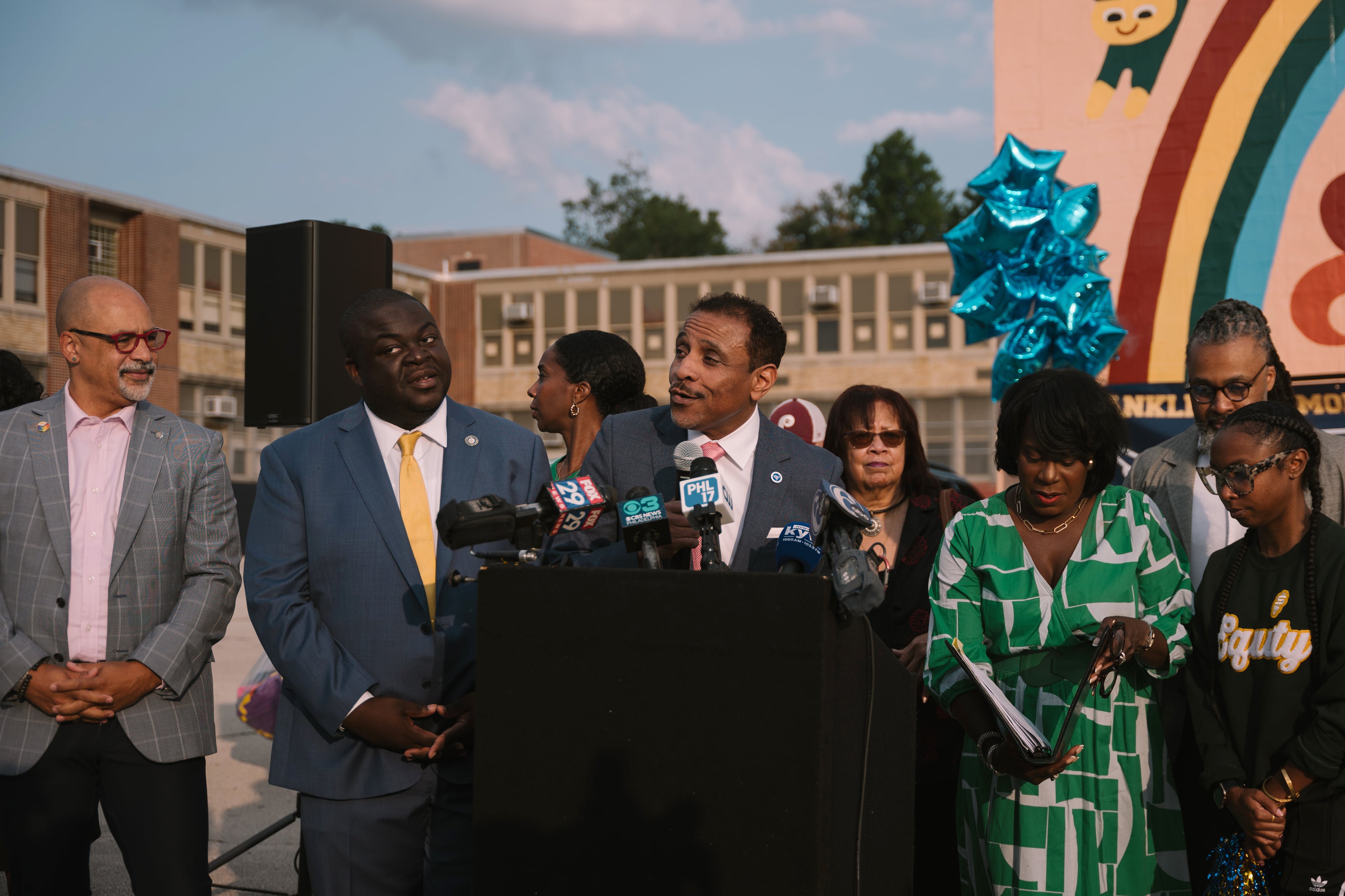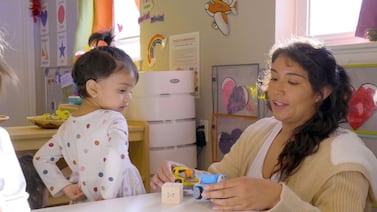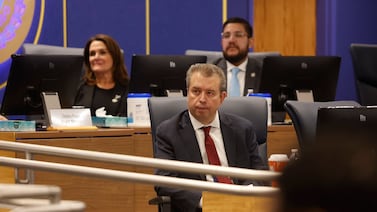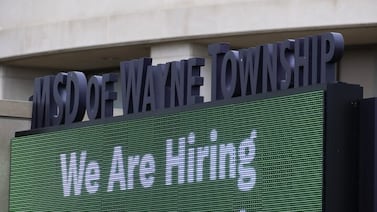Sign up for Chalkbeat Philadelphia’s free newsletter to keep up with the city’s public school system.
Several Philadelphia public schools will “likely” close over the next few years, the city Board of Education president said Tuesday, stating that the school district’s leadership is “done kicking the can down the road” regarding school facilities planning.
President Reginald Streater told reporters the board intends to vote on several items at its Thursday meeting that would commit the board and the school district to involving community input in figuring out how to upgrade the city’s aging school buildings and how to use them more efficiently.
“The time is right” to do this now because of the district’s improved financial situation, Streater said.
Streater said the idea is to figure out “the best way possible so that we can best deliver our resources to our students,” while involving community members and city leaders. “It’s not just ceremonial. It is an actual document that will be signed and will bind the board to a process to include the community,” he said.
As district enrollment has shrunk with the rise of charter schools and stagnation of the overall city population, several Philadelphia’s school buildings now sit mostly empty. Others have been closed for extended periods of time due to costly renovations or environmental hazards. Streater said closures, co-locations, and “repurposing” buildings will be part of the facilities plan: “We have schools that have 200 students in them, or 100 students in them.”
Today there are just under 120,000 students in district-run schools, with another 64,000 in charter schools. In 2000, there were over 205,000 students in 261 district schools, according to district data.
Streater said the board, in cooperation with the district and Mayor Cherelle Parker’s office, will include plans for school closures as part of the final step of its process to produce a facilities master plan.
Since he took office, Superintendent Tony Watlington has been promising to produce such a plan that would set a timeline and budget for repairs and renovations to Philadelphia’s deteriorating school buildings. Watlington repeatedly pushed back the deadline for completing such a study, as did his predecessor, William Hite.
The district has some recent and controversial history with school closures that grew out of facilities planning. In 2013, the district initially planned to close 37 schools and relocate or make other changes in dozens more, based on a report from an outside consulting group that included minimal community input. At packed and often emotional meetings across the city, residents pleaded that their schools be kept open. Ultimately, 23 schools were shuttered.
“We do understand this is going to be tough work … what I think the board can say is this will not be like 2013,” said Streater, who attended Germantown High School, one of the schools that closed in 2013. “We will engage the community … to make sure we give students what they deserve.”
As temporary school closures due to flaking asbestos, inadequate air conditioning, and other structural issues have plagued the district, City Council members led by Education Chair Isaiah Thomas have ramped up the pressure on Watlington to produce a facilities plan. Watlington told the council in April it could take an additional two years to finalize it. He had previously promised the plan would be ready by June 2024.
“Our school facilities are one of our city’s most pressing issues and families across the city have been sounding the alarm for years about it,” Thomas said in a statement to Chalkbeat Tuesday. “While this crisis has a hefty price tag, I am glad to see it getting the attention it deserves.”
Streater said despite delays, the facilities planning process work “didn’t stop.” He said for the past two years, the district has worked to write a five-year strategic plan, create a “swing space” plan for temporary school closures due to environmental hazards, and begin the work of building a “data warehouse” for facilities information.
Information about school facilities hasn’t always been especially easy for the public to access. The district took down a previous website that housed information about facilities earlier this year because it was “not owned by the district.”
Meanwhile, on the first day of school this year, all 63 schools without air conditioning dismissed students early due to excessive heat concerns.
Prior estimates have found it would cost nearly $8 billion to fully upgrade and modernize the district’s buildings, which are on average over 70 years old.
There are two resolutions on the agenda of Thursday’s board meeting about facilities plans.
The board plans to contract with an as-yet-unnamed communications consultant for “community engagement and facilitation support”, and with another unnamed firm for “facilities planning services.”
The resolutions for these services do not have a price tag attached.
This story has been updated to include an additional comment from Board of Education President Reginald Streater.
Carly Sitrin is the bureau chief for Chalkbeat Philadelphia. Contact Carly at csitrin@chalkbeat.org.
Dale Mezzacappa is a senior writer for Chalkbeat Philadelphia, where she covers K-12 schools and early childhood education in Philadelphia. Contact Dale at dmezzacappa@chalkbeat.org.







